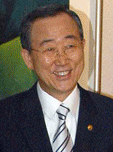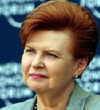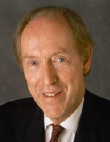In many ways, particularly in the media’s coverage, this year’s selection has been marked by nationalistic fervor to a degree which even the candidates have tried to dissuade. One candidate has personally communicated with apologetic concern that some commenters on this site have made this race about “…national aspirations. I don’t encourage this kind of thinking.”
Ayca Ariyoruk, who has interviewed almost all of the candidates, has noted how this is impacting the race.
“Another matter that should be revised is the habit of linking the candidates to their nationality. It diverts the attention from the candidates and their qualities to national politics. …Thus, when interviewing the candidates, the challenge was to keep the focus on their qualities rather than on the political standing of their countries.
Chapter 15 has an insightful summation of this and its implications for those candidates – all well-intentioned and conscientious individuals – who do not prevail at year’s end and for their countries.
“One of the things that has been striking to us throughout this race is the level of national pride and identity associated with the candidates in this race. The South Korean, Indian, and Sri Lankan press, especially, has fallen in love with the candidates. And, to a substantial extent, their publics have also. The low esteem that the Thai government is in with both its public and its media explains Sathirathai’s support.
“Unfortunately, this close identification with candidates has resulted in publics’ mood following the fortunes of the candidates. For Dhanapala and the Sri Lankans, this is quite serious. The country is at a very serious point, with the peace process — Dhanapala’s peace process — collapsing. The mood of Sri Lankans that we encounter has been deeply impacted by this.
“Furthermore, it is important for the publics to realize that this is not an indictment of their countries. If Shashi Tharoor loses, as it seems he will, this is not an indictment of India. Indeed, the question of whether Singh’s nomination of Tharoor is a blunder will likely be revisited. For the Sri Lankans, they need to understand that Dhanapala’s failings are not their own. They nominated an old man who did not impress people. This is not a statement about Sri Lanka.”
A sad truth, and well said.

 If this is true, it means that while Surakiart, Dhanapala, Zeid and Tharoor’s PM were lobbying hard in Havana, Ban had already locked up the votes from those members who really count in this regard.
If this is true, it means that while Surakiart, Dhanapala, Zeid and Tharoor’s PM were lobbying hard in Havana, Ban had already locked up the votes from those members who really count in this regard. Latvian President Vaira Vīķe-Freiberga has become the sixth candidate and first female to enter the race to succeed Kofi Annan. She was jointly nominated by Estonia, Latvia and Lithuania.
Latvian President Vaira Vīķe-Freiberga has become the sixth candidate and first female to enter the race to succeed Kofi Annan. She was jointly nominated by Estonia, Latvia and Lithuania. The moderator for the September 26th Candidates Forum will be Mr. Garrick Utley, President of the Levin Graduate Institute of International Relations and Commerce at SUNY and co-host of “America Abroad” on Public Radio, a program which examines the United States’ role and relationships in the world.
The moderator for the September 26th Candidates Forum will be Mr. Garrick Utley, President of the Levin Graduate Institute of International Relations and Commerce at SUNY and co-host of “America Abroad” on Public Radio, a program which examines the United States’ role and relationships in the world. 




